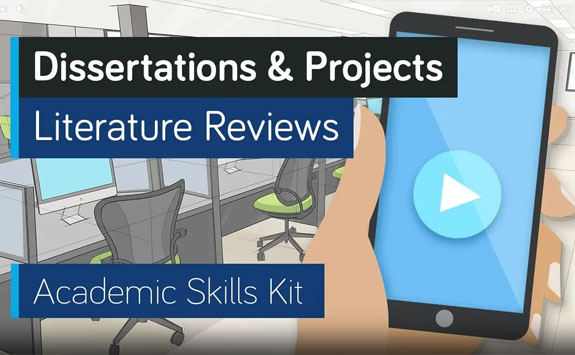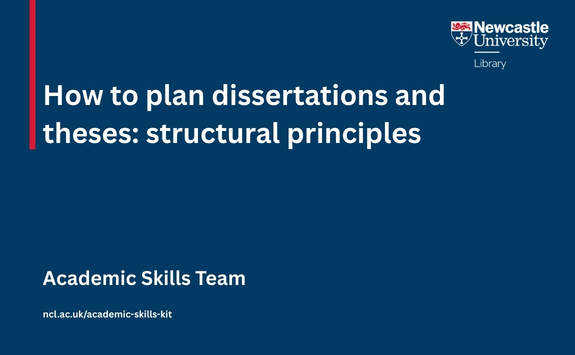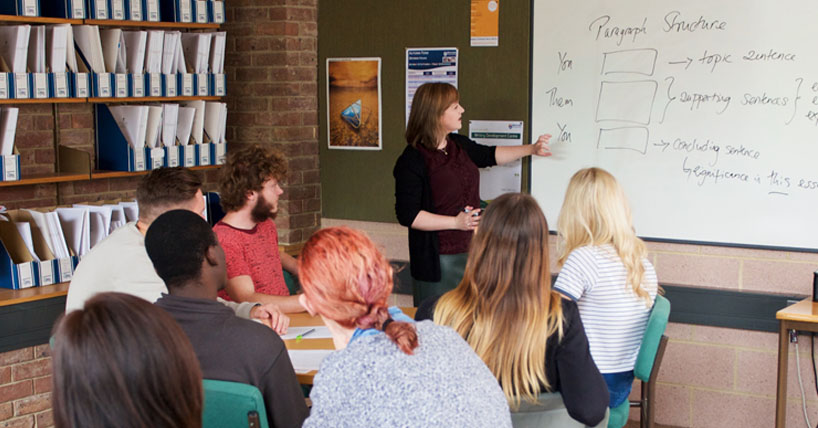Dissertations & Theses
Explore tools and support to help you complete your dissertation or thesis.
What is a dissertation or thesis?
A dissertation is an extended piece of academic writing on a question or problem related to particular subject. Usually done at the end of an undergraduate or master’s degree, this type of research project can take several months to complete.
A thesis is usually completed as part of a PhD. While similar in nature to a dissertation, a thesis is a longer project that tackles a question or problem in-depth and will take a number of years to write and research.
Whether you’re beginning a dissertation, or embarking on your PhD thesis, you’ll find it can be a different challenge to other assignments you’ve completed. These projects require you to bring together all the skills that you will have developed in your studies including: finding and evaluating literature, critical analysis, developing an argument, academic writing and referencing.
Your dissertation or thesis might also include things that you have not done before, for example developing a research question, analysing data or writing an abstract.
Process of writing a dissertation or thesis
Dissertations and theses are long and complicated projects. The processes you need to go through are likely to be iterative, non-linear and dynamic. However, it can be helpful to start by breaking the project down into the different stages, and approach each section of the planning, researching and writing process in turn. You then need to bring the stages together into a single piece of research.
Proposal
A dissertation or thesis is an excellent opportunity for you to immerse yourself in your subject and a topic that you are passionate about. On the other hand, if you’re allocated a project, you’ll need to make the research your own and learn to understand why it’s worthwhile.
Your project proposal allows you to explore these initial research ideas, identify your aims, think around the context of your potential research and get ahead of any pitfalls by thinking about the feasibility and limitations involved.
Thinking about what you want to achieve with your research at this stage, will help inform how you approach your project.
Research Proposal Planning Tool
Literature review
The nature of the research you do will likely depend on your subject area and research question. This may involve conducting interviews, gathering statistics, carrying out experiments or exploring texts and documents. Most dissertations and theses will, however, involve a literature review as part of the research process.
What is a Literature Review?
A literature review sets the scene for your work. It places your research in context, and shows how it relates to and builds upon the work of others. It’s also your chance to tell people why your work matters, why it’s relevant, and how it contributes original research to your field.
In your literature review, you’ll discuss the strengths and weaknesses of the information you’ve found, and describe why you think it’s important. You might also want to discuss gaps in the literature that your own research will attempt to fill.
Literature Searching and Reading
Compiling a literature review involves rigorous literature searching, critical reading of information and combining ideas and research from different sources. You’ll need to develop an effective search strategy to ensure you find all the key information relevant to your topic.
New research is published every day, and your work is likely to take you down paths you hadn’t thought about initially so you’ll need to frequently return to and adapt your search, and then update your literature review as you go. As part of your search strategy, it's important that you consider how you'll keep your research up to date, and how you'll manage all the information you'll find.
There are different types of literature review too, so check with your supervisor to make sure you know what is expected. If you’ve been asked to take a systematic approach, our systematic review guide can help you understand the systematic process.
Dissertation Structure
As this will be one of the longest academic documents you'll create, it can be helpful to start thinking about the overall shape of your dissertation early on, considering how many chapters there will be and how they'll relate to each other. This will be a provisional guide at first but having an idea of the structure can give you a way forward, help you to stay focused, and help manage your word count.
Where to go for support
You will be given a supervisor for your dissertation or thesis by your academic school or institute. Your supervisor is there to give you advice and guidance about all aspects of your research project.
There is also support and advice available to you at each stage of your project from the services below:











